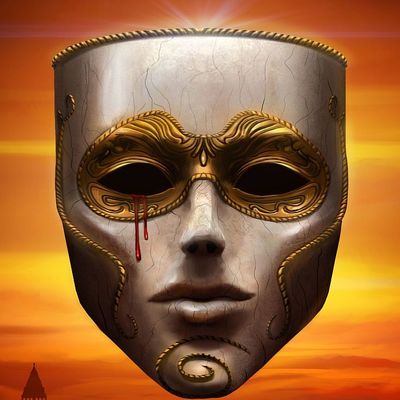
Chapter Two: Bibliothecarius Scriptor Timoris II
I did not go directly to the restricted collection. Instead, I returned to my duties in the main library, cataloguing a recent acquisition of patristic texts. But my thoughts were elsewhere, revolving around that strange phrase: The years from 666 to 911 were never lived.
Could it be possible? The suggestion was so outlandish, so contrary to everything I had been taught, that my rational mind rejected it instantly. And yet, I had glimpsed the calculations, the careful astronomical observations that placed events decades, even centuries away from their accepted dates. I had seen the name—"Gregorius, who forged time"—written in a hand that trembled with what seemed like genuine fear.
As I worked mechanically through the afternoon, I recalled fragments of lectures from my student days in Paris, before I took my vows at Saint Gallen. Discussions of anomalies in the historical record, of sudden and inexplicable advances in architecture during the "Dark Ages," of contradictory accounts of events separated by vast distances. These had been presented as curiosities, scholarly puzzles to be solved through careful study. Never had anyone of any note ever seriously suggested a more radical, and yet simpler, explanation: the historical chronology itself might be false.
The abbey bell rang for vespers, breaking my reverie. I joined the procession of brothers making their way to the chapel, but found myself unable to focus on the familiar prayers and responses. My mind was elsewhere, turning over the fragments I had read, searching for some explanation other than the impossible one presented in that forbidden book.
After vespers, I fulfilled my assignment, placing the documents in the southwestern cabinet of the restricted collection. But as I turned to leave, my eye caught a familiar spine on a nearby shelf—Bede's Ecclesiastical History of the English People. I recalled that the manuscript had mentioned Bede in passing, had indicated that he was somehow "complicit" in something, presumably something to do with the phantom centuries. On impulse, I took the volume from the shelf and secreted it beneath my habit.
It was harmless enough. Even if its absence was discovered or if it was found in my possession, no one would think anything of it. Except, I suspected, Father Umbertus. If he had read the untitled book, and I had to assume that he had, he would know why I was suddenly interested in the Venerable Bede.
The night deepened. The brothers gathered for compline, the final office before retiring to their cells for the night. But I noticed an absence: Father Umbertus was not among the assembled monks. This was unusual—the old librarian was customarily scrupulous in his observance of the daily offices.
Instead of entering the chapel, I lingered in the shadows of the cloister arcade. My conscience protested this dereliction of duty, but my curiosity—that dangerous "disease" Augustine had warned against—proved the stronger.
I waited, watching the chapter house and the corridors beyond. My patience was rewarded when, shortly after compline began, I saw a cloaked figure emerge from the shadows: Father Umbertus, moving with uncharacteristic haste, holding something concealed beneath his robes.
I followed at a distance, careful to keep to the shadows. He made his way past the chapter house to a section of the abbey I knew was seldom used—a remnant of an older structure, preserved but largely forgotten in the monastery's successive renovations. There, to my astonishment, he unlocked a door I had never noticed before, disguised as part of the paneling, and disappeared inside.
I waited, counting my heartbeats in the silence. One hundred. Two hundred. When he emerged, his hands were empty, his shoulders slumped as if relieved of a great burden.
I pressed myself against a column as he passed, but he was too absorbed in his thoughts to notice my presence. Only when he had moved a safe distance down the corridor did I step from my hiding place, intending to examine the secret door.
But I had not taken two steps when his voice stopped me cold.
"You did not attend Compline."
I turned to find him standing in the shadows, his face half-illuminated by the single candle he carried. I had not heard him double back, had not sensed his presence until he spoke. The realization that he had been watching me, even as I thought I was observing him, sent a chill through my body.
"Nor did you, Father," I answered, striving for composure. "I thought perhaps you were unwell."
"I had duties to attend to."
"In the old archive?" I couldn't help glancing toward the hidden door. "I didn't know that section was still in use."
His expression hardened. "Brother Lukas, you are young, and therefore I have been patient with your... natural curiosities. But you test the limits of that patience now."


















